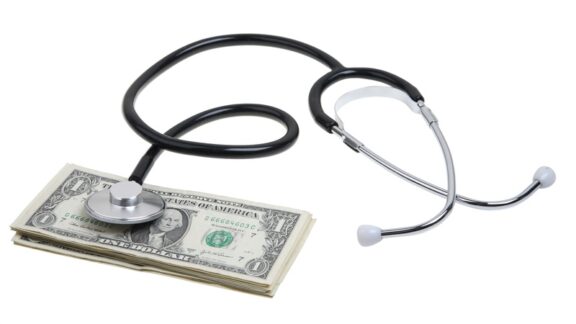The American Medical Association calls prior authorization “an overused process that interferes with patients receiving timely care, or even any care at all.” And more than one in four physicians say that delays or denials have led to a serious adverse event. But you don’t have to take no for an answer. Here’s what you should know about prior authorizations and appeals.
Depending on your health insurance policy, you may have noticed that you need to get permission from your insurer before it will pay for a medication, treatment or procedure your doctor prescribes — even if it’s covered by your plan. This extra step, called prior authorization, is becoming more common with most types of health insurance, including Medicare Advantage, employer coverage, and individual plans sold through HealthCare.gov or your state health insurance marketplace. When your health plan requires prior authorization, your doctor must provide evidence that the specific care is medically necessary and is the best course of action in your situation.
Prior-authorization requirements have increased significantly over the past few years. For example, virtually all enrollees in Medicare Advantage plans are required to obtain prior authorization for some services, and these insurers made nearly 50 million prior-authorization determinations in 2023, up from 37 million in 2021, according to health policy research organization KFF.
Insurers don’t always approve these requests. In 2023, for example, Medicare Advantage insurers fully or partially denied 3.2 million prior-authorization requests, according to KFF. Insurers say that prior authorization provides a vital screen to ensure patients receive safe, evidence-based care and to reduce low-value and inappropriate services so that coverage is as affordable as possible.
The American Medical Association, however, calls prior authorization “an overused process that interferes with patients receiving timely care, or even any care at all.” More than , denials after a claim, , such as hospitalization, disability or even death for a patient in their care.

And prior authorization isn’t the only obstacle you may encounter. You may face a denial of your claim after you receive a procedure or treatment if the insurer decides that your coverage doesn’t include it or you didn’t get the necessary prior authorization first.
But you don’t have to take no for an answer, and perseverance often pays off. Less than 12% of Medicare Advantage prior-authorization denials were appealed in 2023, but more than 81% of the appealed denials were partially or fully overturned, KFF found. Only 1% of in-network denials were appealed for policies sold on HealthCare.gov, but 44% of the denials were overturned at the first level of appeal, KFF found. You may also be able to successfully appeal denials from employer health insurance plans or traditional Medicare — whether for prior authorization or for a service you already received — although few people know their appeal rights.
“Never accept the first denial letter you get, because it is often just the default reaction to treatment protocols, especially if it’s something new,” says Suzanne Garner, 47, of San Diego, who was first diagnosed with breast cancer seven years ago. “It doesn’t matter if the treatment is fully FDA-approved and, in the case of oncology care, even if the National Cancer Coalition and ASCO [the American Society of Clinical Oncology] have endorsed it to be a piece of standard of care,” she says. “If it’s new, for a while, it’s likely to be denied.”
By appealing, Garner has successfully reversed more than 20 prior-authorization denials and five denials for claims after receiving a bill. “At the beginning, I was very intimidated when I would get these denials and big cost estimates, and I remember crying and saying to my husband that we would have to go into our daughter’s college fund or our retirement fund,” Garner says. “For the most part, we figured it out, but it took being brave, advocating for myself and waiting on hold a lot. Don’t be afraid to appeal, and don’t be afraid to ask a lot of questions.”
Here’s what you need to know to appeal a health insurance denial, whether it involves a prior authorization request or a big bill following a procedure or treatment that you believe your insurance should cover.
Help from your doctor
The procedure for appealing a denial varies depending on the type of health insurance. “You have to follow the time line and the instructions on the explanation of benefits or the Medicare summary notice,” says Tatiana Fassieux, education and training specialist for California Health Advocates.
Whatever the appeals process, you should contact your doctor’s office right away after you receive a denial. “There’s a certain amount of time to appeal — sometimes it’s 30 to 60 days, depending on the insurance. But we might not be alerted to that denial until 21 days have passed, and sometimes it’s a fight against time,” says Michelle Vanderwaall, who spent more than 20 years as an operations manager for several surgical specialties in a San Diego hospital system.
Your medical team may regularly deal with appeals, developing expertise in navigating them. The staff at the office of Garner’s oncologist were instrumental in overturning denials for PET scans, breast MRIs, an oophorectomy (ovary removal surgery) and other procedures. Several of the denials were reversed after her oncologist got on the phone with a doctor at the insurance company and explained her specific needs, a step called a peer-to-peer review.
Bruce A. Brod, a physician and clinical professor of dermatology at the University of Pennsylvania Perelman School of Medicine, says that he sometimes can get a denial reversed through a peer-to-peer review. But the conversation isn’t necessarily with other dermatologists, so he may need to take extra time to explain the patient’s needs.
Other sources of assistance
Some doctor’s offices are more helpful with appeals than others, and you may need to advocate for yourself. But that can be difficult to do when you’re learning new medical terminology while dealing with a major diagnosis.
Garner learned a lot from other cancer survivors in support groups, and she shares the knowledge she has collected, too. For example, she helped a neighbor who was diagnosed with breast cancer get 14 months of coverage for an infusion her oncologist recommended. The insurance company wanted to pay for only eight months. Garner used Outcomes4Me, a cancer-support app that aggregates medical research for patients based on their specific diagnosis (Garner now works for Outcomes4Me), and they looked through PubMed (a resource of medical literature from the National Institutes of Health) and Google Scholar to find newer studies. “We were able to pull together a compelling case with numerous studies that showed it was more effective to have the full 14 months,” she says.
You may get help from a nurse navigator or a social worker at the hospital or your doctor’s office. Additionally, nonprofits and advocacy groups specializing in your disease may provide resources and help with claims. You may also get help from organizations such as Triage Cancer (https://triagecancer.org) and the Patient Advocate Foundation (www.patientadvocate.org).
“I think one of the major challenges is that there is an overarching lack of awareness about the appeals process,” says Monica Bryant, a cancer-rights attorney and chief operating officer for Triage Cancer.
Bryant has helped reverse denials in a variety of situations. She helps gather the evidence to build the patient’s case, which can include medical records, test results, literature, clinical trial results, a personal narrative or a letter from the doctor.
Kimberly Lankford is a contributing writer at Kiplinger Personal Finance magazine. For more on this and similar money topics, visit Kiplinger.com.
©2025 The Kiplinger Washington Editors, Inc. Distributed by Tribune Content Agency, LLC.
Read more helpful articles on Seniors Guide:
Why You Should Read Your Medical Records




